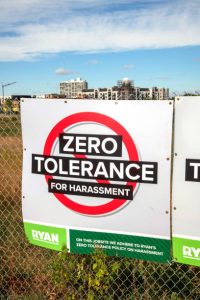
Employers cast a moral view that the employee is a drug addict
Medicinal cannabis in the workplace is becoming a more common phenomenon as Australia’s doctors continue to prescribe the drug at increasing rates. In fact the amount and usage of medicinal cannabis is understated in both the community and the workplace. But for many Australian workers, the rules around medicinal cannabis in the workplace are largely unknown, inspiring many questions. Also what compilates matters also is many employers cast a moral view with the connotations that the employee is a drug addict and form their policies with this in mind. Can you be dismissed for using medicinal cannabis at work? is an important question in the modern industrial relations era.
For instance, is it OK to be under the influence of medicinal cannabis in the workplace? What if your employer has a zero-tolerance drug and alcohol policy – are exceptions made for medicinal cannabis? Employees go to work after taking their anti depressants, pain medication, should this be any different. You take a pain killer for that migraine at lunch time, this seems acceptable, but medical prescribed cannabis is not. And can you be dismissed for it? In this article, we answer all these questions surrounding medicinal cannabis in the workplace. And we look at a recent unfair dismissal case that illustrates how the Fair Work Commission considers the issue of cannabis in the workplace.

Medicinal cannabis in the workplace is becoming more common
Medicinal cannabis use was legalized by the Australian government on a federal level in 2016 with the amendment of the Narcotics Drug Act 1967. This allowed Commonwealth approved medical professionals to obtain cannabis to treat patients. Since 2016, there have been 248,000 prescriptions of the drug handed out to Australians, a 2022 study has revealed. The last few years has seen a boom in medicinal cannabis use, with prescriptions having doubled from 2020 to 2021. Over 122,000 prescriptions were handed out in 2021 alone, compared to just 2,500 in 2018.
Medicinal cannabis has been used to treat more than 140 medical conditions. Chronic pain, anxiety, sleep disorders, epilepsy and multiple sclerosis are among some of the most common conditions for which medicinal cannabis is prescribed. With the growing number of prescriptions, navigating the rules around medicinal cannabis in the workplace will soon become a key concern for Australian workers and employers, if it hasn’t already.

Is it legal to be under the influence of medicinal cannabis in the workplace?
The use of medicinal cannabis in the workplace raises key concerns for employees, even though a prescription is completely legal. It’s important to consider whether your use of medicinal cannabis in the workplace can detrimentally impact your ability to safely perform your job. Cannabis contains two main components – Cannabidiol (CBD) and tetrahydrocannabinol (THC). The chief psychoactive component of cannabis is THC, which provides cannabis users with the feeling of being “high.”
It’s critical to understand that a workplace urine drug test can detect THC in your system up to one month after smoking or ingesting cannabis. A saliva drug test can identify THC in your system within four to six hours after consumption. Any THC is unlikely to be detected 24 hours after consumption. The THC in your system can mean ( or may mean) you can’t perform your job. For instance, if you are required to operate heavy machinery or drive. In all Australian states and territories, it is illegal to drive while you have THC in your system.
When it comes to other types of jobs, you still need to carefully consider the affect that medicinal cannabis can have on your performance. The context of your work along with the nature of your employer’s policies regarding prescription drugs need to factor into this consideration. Many workplace investigations, particularly in the mining and construction sector relate to drug use. These industries certainly have a high rate of dismissals around the issue of OH&S.
What does the employers drug and alcohol policy say
It’s important to carefully review your employer’s “drug and alcohol” policy. Specifically, with regard to how it refers to prescription medication, other controlled substances and intoxication. You should also find out if the policy has any provisions regarding drug testing and the consequences of testing positive. For instance, if you can be stood down or dismissed for having a positive result. An example of this some companies have a policy that you will be terminated, in other words not negotiable, almost regardless of the situation. Others have a policy of you may be terminated, in other words, lets look at the circumstances.
What we have found is a pattern of companies whilst relying on the OH&S issues, policies, inherent functions of the role, seem to decide as to whether your dismissed based on the drug you have taken. Where in some regards its relevant as to polices and the OH&S effect In this regards medicinal cannabis comes off a poor second, its a kind of discriminatory behaviour that is not outlawed.

Do you need to tell your employer you have a prescription?
Every Australian employee has the right to privacy. Therefore, you don’t have to disclose to your employer that you have a prescription and are using medicinal cannabis in the workplace. However, if your employer’s policy allows for the consumption of prescription medication, you may want to disclose it to them. Convention is that you have to inform your employer of any issue that effects your ability to do your job. If it doesn’t effect your ability then your not obligated to automatedly inform them.
If your employer has a “zero-tolerance” policy around prescription drugs, you may want to take a proactive approach and inform them that you are using medicinal cannabis in the workplace. This can help you establish an understanding with your employer about how your medical treatment affects your work. Also, it can help you avoid trouble and possibly being dismissed in the event that your employer finds out that you are using medicinal cannabis in the workplace.
Can I be dismissed for disclosing my cannabis prescription to my employer?
You can’t be dismissed for simply having a legal cannabis prescription, or any medical prescription for that matter. In fact, if you have been suffering from a medical condition for a long time, it may be classified as a disability under federal and state laws. This means that if your employer were to treat you differently or adversely for having a cannabis prescription to treat your medical condition, it could be considered discrimination. You may then have the right to make a general protections claim against your employer through the Fair Work Commission.
This is what a Queensland rail worker did recently after he was dismissed for taking medical cannabis in the workplace. The worker had been legally prescribed cannabis to treat anxiety and sleep deprivation. He’s currently seeking almost $250,000 in damages from his former employer, with the case still pending.

Can I be dismissed if my employer has a zero-tolerance policy?
The law and its application by the Fair Work Commission and the courts is still uncertain when it comes to zero-tolerance workplace drug policies. One of the factors contributing to this is that sometimes a workplace policy that claims to be zero-tolerance policy isn’t actually so. This was demonstrated in the recent unfair dismissal case Mr Gary Hilder v Sydney Trains [2019]. It involved a 64-year-old Sydney Trains worker who was dismissed after he tested positive for cannabis due to a random drug test.
In October 2018, customer service attendant Gary Hilder randomly bumped into an old friend he hadn’t seen for some time. He was invited to his house, and while there, was offered a single cannabis cigarette to smoke. Mr Hilder went home and had dinner with his family, feeling no ill effects. So too the next day when he turned up for work, confident that he could do his job. But at 7am, Mr Hilder was given a urine test that produced a positive result for cannabis metabolites. Mr Hilder was subsequently suspended without pay while Sydney Trains launched an investigation into the result.
During the investigation, Mr Hilder admitted that the night before the positive result, he had smoked cannabis for the first time in over 30 years. This breached Sydney Trains’ zero-tolerance drug and alcohol policy. In November, Mr Hilder was dismissed by Sydney Trains for serious misconduct. He subsequently made an unfair dismissal claim with the Fair Work Commission.

Fair Work Commission rules on the unfair dismissal case
At the unfair dismissal hearing, Sydney Trains contended that it had considered Mr Hilder’s mitigating and personal circumstances when it dismissed him. Also, that its decision to dismiss Mr Hilder was in line with its zero-tolerance drug and alcohol policy as well as its disciplinary policy.
However, the Fair Work Commission found that the dismissal was unfair for several reasons. This included because:
- Mr Hilder’s smoking of the single cannabis cigarette wasn’t serious misconduct nor was it reckless or deliberate. Rather, it was a one-off incident and an error of judgement.
- There was an inconsistency between Sydney Trains’ zero-tolerance drug and alcohol policy and its disciplinary policy. The latter required the consideration of mitigating circumstances, which left many staff members unsure of how it would be applied.
- While Sydney Trains professed to have a zero-tolerance drug and alcohol policy, this actually wasn’t true. An employee would breach the policy if they were tested to have a THC level of more than 15ug/Ls. However, the test could only determine if at least 50ug/ls was present.
- Sydney Trains hadn’t effectively communicated the zero-tolerance policy to staff. It was accepted that had Mr Hilder known that any level of cannabis in his system would lead to dismissal, he would have acted differently the previous night.
Personal circumstances have to be considered
The Fair Work Commission also took Mr Hilder’s personal circumstances into account. This included his age, that he had a dependent child living with him, and his limited ability to find a new job. Mr Hilder’s precarious financial situation and the fact that he was remorseful was also taken into account. The Fair Work Commission ultimately ruled that Mr Hilder’s dismissal had been unfair and ordered that he be reinstated.

Call us today for advice regarding medicinal cannabis in the workplace
Navigating the law and your employer’s policies can be difficult, so it’s advised that you seek professional guidance. We at a Whole New Approach are workplace relations advisors and commentators with more than 20 years’ experience. AWNA are not workplace drug use specialist. The article is to bring to your attention what’s going on in the workplaces of today. We can help you understand what your rights are with regard to medicinal cannabis in the workplace.
Your first consultation with us is free, so call us today on 1800 333 666 for a confidential discussion.
If you have been unfairly dismissed for failing a drug test. Whether for using medicinal cannabis in the workplace or otherwise. A Whole New Approach can help. We have the deep expertise to help you understand if you can make an unfair dismissal claim with the Fair Work Commission. All abandonment of employment, issues casual employee rights and adverse action towards you over your illness or medical circumstances call us immediately.
We’ve helped over 16,000 Australian workers take action through the Fair Work Commission, so we know how to make the process easy for you. And we can help ensure it’s a success. Sacked from work unfairly for any reason call now
You can also benefit from our no win, no fee service, so call us today on 1800 333 666.
Articles similar to: Can you be dismissed for using medicinal cannabis at work?
Dismissed for being drunk when is it fair






